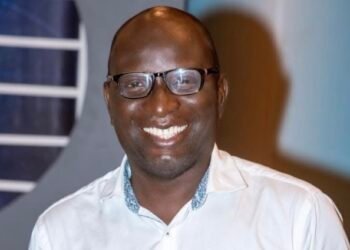The issue of title regulation in Ghana has taken center stage in recent weeks, following an intensified campaign by the Ghana Tertiary Education Commission (GTEC) to clamp down on individuals and institutions using unearned academic titles.
The debate, however, has exposed deep concerns about the lack of clarity and consistency in how the law is being enforced.
Prof. Stephen Kwaku Asare, legal scholar and Democracy and Development Fellow at CDD-Ghana, expressed alarm over what he views as a troubling trend: treating a section of the law as though it grants unchecked authority.
He explained that too many people have placed excessive weight on Act 1023, section 8(4)(d), which provides that “the Commission shall regulate the use of higher education nomenclature and titles including ‘university’, ‘college’, ‘Emeritus’, ‘Professor’, ‘Doctor’, ‘Chartered’, and related terms.”
He argued that this provision has often been misinterpreted as granting the Commission the authority to act on its own.
“From this, some jump to the conclusion that the Commission can simply write letters to Prof. Azumah Nelson, or to “GOGO’s College of Advanced Comprehension,” or to anyone using a ‘related term,’ however the Commission defines the term.
“These people assert or assume that a grant of power = licence to act without rules. I disagree.”
Prof. Stephen Kwaku Asare

Prof. Asare insisted that “a grant of power is not licence to act without rules.” He stressed that when the law says “the Commission shall regulate …” it conveys regulatory authority, but not unlimited discretion.
Ghana’s Constitution, under Article 296, requires commissions and agencies to exercise such authority within defined, transparent parameters, rather than on an ad hoc basis.
Calls For Proper Framework In Title Regulation
Prof. Kwaku Asare further outlined the minimum obligations that a regulatory body should meet: publishing official regulations or directives, defining clearly what constitutes permitted or prohibited use of titles, and establishing processes for registration, approval, or enforcement.
Without these measures, the Commission risks being accused of arbitrariness, lack of transparency, and violating principles of natural justice.

“Take some obvious examples. Can Azumah Nelson call himself Professor when the context is clear that he is a boxer, not an academic? Can someone named after a professor be called Prof. as is customarily done? Can “prof” be used informally for anyone who professes at a university, even when it is not a formal rank? Can the title be used in jest, in admiration, or in any other way when it is clear there is no intent to deceive?”
Prof. Stephen Kwaku Asare
He cautioned that in the absence of clear and publicly accessible rules, uncertainty lingers, leaving GTEC to determine such issues on a case-by-case basis without consistency.
This, he strongly stressed, amounts to the kind of arbitrary decision-making that the Constitution explicitly forbids and warns against in matters of governance.
Enforcement Advised To Follow Guidelines
For Prof. Asare, the solution is straightforward. The Commission must first consult stakeholders, draft regulations or guidelines, and then publish them officially through gazettes, websites, or circulars.
Only after that should it proceed with enforcement measures such as letters, warnings, fines, or legal action.

Attempting to bypass these steps, he warned, risks exposing the Commission to legal challenges. He emphasized that authority to regulate is not equivalent to unchecked license, and that enforcement should always follow established procedures.
“This is not a new rule. It was the same logic that led to my lawsuit against GLC in 2015. Even with anti-looting provisions in the Constitution (e.g., Article 286(4)), an enabling law is still required before assets can be seized.”
Prof. Stephen Kwaku Asare
His argument then, as now, is that constitutional provisions, however well-meaning, must be backed by clearly defined regulations before they can be applied in practice.
Avoiding A “Prof-Police” Culture
Beyond the legal technicalities, Prof. Asare also called for a measured approach to the cultural use of titles. In his view, society often complicates matters unnecessarily.
If someone is not a professor, they should not falsely claim it. If someone legitimately holds the title, they should not exploit it unduly.

However, he cautioned against creating a “prof-police” culture, where regulators chase down every informal or harmless use of titles without a formal framework.
For him, the way forward lies in balancing the genuine need for protecting academic and professional integrity with respect for constitutional safeguards and public transparency.
Ghana, he concluded, does not need arbitrary crackdowns, but clear rules that everyone can understand and follow.


















